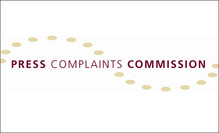 The Press Complaints Commission concluded that the Editors' Code had been breached Credit: PCC
The Press Complaints Commission concluded that the Editors' Code had been breached Credit: PCC According to the adjudication published today, the journalist was invited to the hospital by a patient's parents.
However chief executive of Mid Essex Hospital Services NHS Trust complained to the Press Complaints Commission that the paper's reporter had not identified himself "to a responsible executive" before entering a non-public area of a hospital.
The Trust also argued that its policy was for stories to be requested through its communications team and pre-arranged, particularly in relation to vulnerable patients.
The newspaper argued that as well as being invited by the patient's family to perform the interview, who have not complained, the journalist made it clear to hospital staff that he was a reporter and identified the newspaper he worked for.
The PCC said while it was not in a position to resolve what it said was a "significant dispute" about what was said by the journalist at the time, it had concluded that there had been a breach of the the Editors' Code of Practice.
"In the view of the Commission, the reporter could have acted to ensure that there was no uncertainty about his identification, and that the necessary permission had been obtained from a "responsible executive", before entering the unit where the patient was being treated.
"This could have been achieved, for example, by asking at reception at the beginning of the visit to speak to a relevant executive, or approaching the hospital in advance. Bearing in mind that the patient was in an especially vulnerable condition, the onus was on the reporter to ensure that he was open about his status with the hospital.
"As it was, the conversation in which the journalist had allegedly identified himself had been with staff in the unit; he appeared, therefore, to have already entered a non-public area. Under the terms of Clause 8, appropriate permission should have been sought well before entering this area.
"The Commission did not believe a reporter speaking to medical staff (whom he was not able to identify by name or position), while already in the unit, was adequate in light of the requirements of Clause 8."
The PCC also added that it did not consider the general public interest in this case as being "sufficient to justify the manner in which the material had been obtained".
In a statement the editor of the Essex Chronicle Alan Geere said: "We view this very much as a technical breach of the code.
"We were invited to the bedside by the family, wrote a fair and balanced report and received no complaint from anyone except the hospital.
"The PCC acknowledge the public interest in the story and we are very disappointed that our vigourous, campaigning style of journalism has resulted in this public slap on the wrists."
Guidance already offered by the PCC on the issue of hospitals and other institutions states that unless there is a public interest in doing otherwise ,"journalists must identify themselves to a "responsible executive" and obtain permission before entering a non-public area of hospitals", which includes wards and treatment areas.
"Clause 8 of the Code also covers 'similar institutions' to hospitals which also offer medical facilities, and – for example – the PCC has upheld a complaint about a journalist entering a nursing home without the consent of an executive."
Free daily newsletter
If you like our news and feature articles, you can sign up to receive our free daily (Mon-Fri) email newsletter (mobile friendly).









